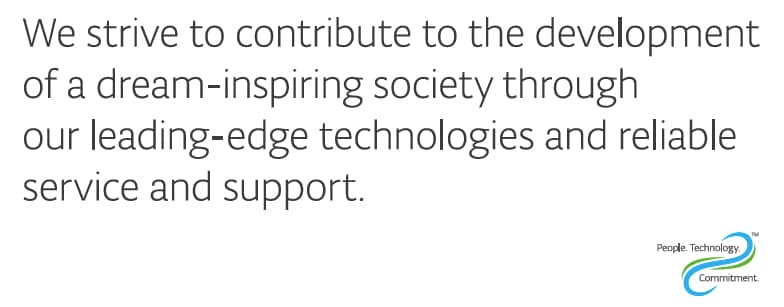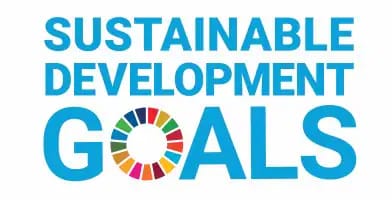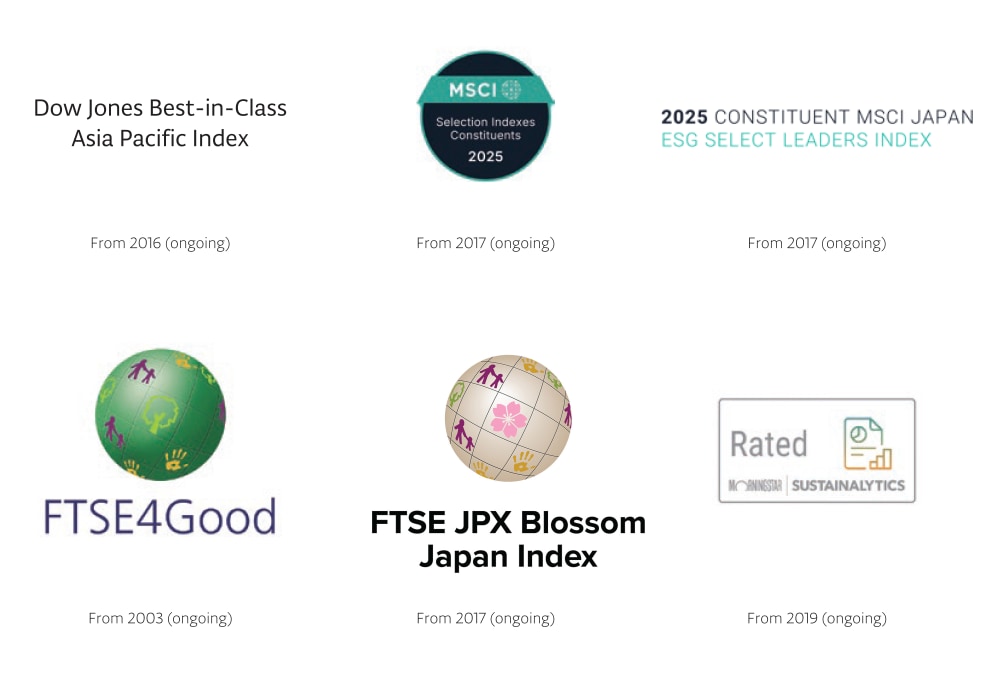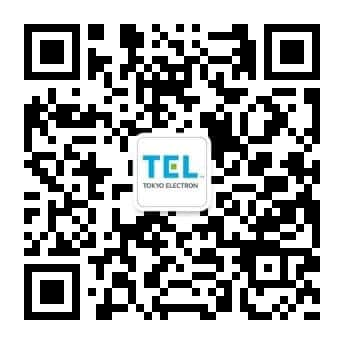TEL's Sustainability

Sustainability and Framework of Corporate Principles
Tokyo Electron’s sustainability initiatives are the practice of its Corporate Philosophy through achieving its vision. We make clear the material issues in our growth and promote these initiatives. Together with the building of a resilient management foundation, by providing high-value-added products and services, we contribute to the resolution of issues and development of industry and society as well as the achievement of the SDGs.
To be a company that is highly trusted and loved by society, we work on medium- to long-term profit expansion and continuous corporate value enhancement.

Sustainability initiatives
Our approach to sustainability is to practice our Corporate Philosophy through realizing our Vision. We conduct activities for sustainability initiatives that we have organized into the following four frameworks: Governance, Strategy, Risk Management, and Metrics and Targets.
Main Initiatives in the Four Frameworks
Governance |
|
||
|---|---|---|---|
Strategy |
|
||
Risk Management*² |
|
||
Metrics and Targets |
|
||
Material issues were revised in fiscal 2024.Refer to Material issues
Refer to Risk Management
Refer to Integrated Report Key Indicators for Continuous Corporate Value Enhancement
Refer to Annual Sustainability Goals and Key Indicators
Sustainability Promotion Framework
We promote sustainability activities throughout the entire Group through the following committees.
| Conference Name | Participants | Function | Meeting Frequency |
|---|---|---|---|
| Sustainability Committee |
|
|
Twice annually |
| Sustainability Global Committee |
|
|
Twice annually |
| Sustainability Monthly Meeting |
|
|
Monthly |
Report and discuss important issues at the Corporate Officers Meeting, the highest decision-making body on the executive side Corporate Officers' Meeting: Refer to the Corporate Governance System
Sustainability Manager: Person responsible for coordinating all aspects of sustainability at the Group companies in Japan and overseas companies
In addition to these committees, we invite all employees to submit examples of sustainability in the workplace, toward issue resolution and advancement of industry and society, and practice of our Corporate Philosophy. Outstanding initiatives are awarded the TEL Sustainability Award by the CEO and shared throughout the entire Group as best practices.
Initiatives for Sustainable Development Goals (SDGs)
The SDGs are a universal set of goals to achieve by 2030, which were unanimously adopted by the United Nations Sustainable Development Summit in 2015.We conduct activities on a company-wide basis, and for each CSR fiscal year and medium-term goal, and each material issue, we clarified the SDGs it is working toward through business.
Additionally, we regularly hold SDGs workshops where employees working in a variety of fields come together autonomously to share activities through business and discuss issues such as future prospects toward the achievement of the SDGs.

Tokyo Electron Supports the SDGs
In fiscal year 2022, we reaffirmed the 17 goals and 169 targets* being undertaken by the priority themes of our material issues.
169 targets reaffirmed: Our initiatives toward the 17 goals and 169 targets that make up the SDGs. Refer to 169 Targets of the SDGs
Medium-term Management Plan
This Medium-term Management Plan sets financial targets of net sales of 3 trillion yen or more, an operating margin of 35% or more, and ROE of 30% or more by fiscal 2027, to further improve our world-class operating margin and ROE. Amid the expectation of further increasing demands for semiconductors and significant future growth in the semiconductor production equipment market, we will advance various initiatives throughout the value chain, always strive for the Best Products, Best Technical Service and aim to achieve medium- to long-term profit expansion and continuous corporate value enhancement.
Financial Targets
| Fiscal Year 2025 Performance | Financial Targets (Target Year: Fiscal Year 2027) |
|
|---|---|---|
| Net Sales | 2,431.5 billion yen | 3 trillion yen or more |
| Operating Margin | 28.7% | 5% or more |
| ROE* | 30.3% | 30% or more |
ROE: Return On Equity
Participation in Global Initiatives
We actively participate in a variety of global initiatives and practice sustainability in our business activities.
We signed onto the United Nations Global Compact (UNGC) in 2013 and are working to contribute to the realization of sound globalization and a sustainable society in accordance with its Ten Principles.

United Nations Global Compact
We joined the Responsible Business Alliance (RBA) in 2015, and we work together with suppliers to ensure compliance with the RBA Code of Conduct comprised of “labor”, “environment”, “health and safety”, “ethics” and “management systems”.

Responsible Business Alliance
In 2020, we expressed our approval of the recommendations offered by the Task Force on Climate-related Financial Disclosures (TCFD)*¹ and are conducting disclosures based on the framework of governance, strategy, risk management and metrics and targets relating to the risks and opportunities that climate change presents to our overall business.

Task Force on Climate-related Financial Disclosures
We concur with the vision of the Taskforce on Nature-related Financial Disclosures (TNFD) and in 2023, joined the TNFD Forum, which appropriately evaluates risks and opportunities related to natural capital and biodiversity.

Taskforce on Nature-related Financial Disclosures
We joined a global industry association, SEMI*² which aims for the global development of the semiconductor industry, in 1978 as a member company, and engage in the promotion of the establishment and standardization of international guidelines as well as the promotion of sustainability.

SEMI:Semiconductor Equipment and Materials International
Third-party Recognition
Our sustainability initiatives have allowed us to continue to be selected as a constituent stock under leading global ESG indices such as the Dow Jones Best-in-Class Asia Pacific Index (formerly Dow Jones Sustainability Indices), the FTSE4Good Index Series*¹, the FTSE JPX Blossom Japan Index(formerly FTSE Blossom Japan Index)*¹, the MSCI Selection Indexes*¹ (formerly MSCI ESG Leaders Indexes), the MSCI Japan ESG Select Leaders Index*¹, and the ISS ESG Corporate Rating. Furthermore, continuing from the previous year, we were again evaluated as a Low Risk company in Sustainalytics’ ESG Risk Ratings*². The Tokyo Electron Integrated Report 2024 was selected again as an “Excellent Integrated Report” by the Government Pension Investment Fund (GPIF)’s external asset managers entrusted with domestic equity investment for the fourth consecutive year.

Copyright ©2025 Sustainalytics. All rights reserved. This article contains information developed by Sustainalytics (www. sustainalytics.com). Such
information and data are proprietary of Sustainalytics and/or its third party suppliers (Third Party Data) and are provided for informational purposes only. They do not constitute an endorsement of any product or project, nor an investment advice and are not warranted to be complete, timely, accurate or suitable for a particular purpose. Their use is subject to conditions available at https://www.sustainalytics.com/legal-disclaimers.
MSCI ESG Leaders Indexes: Companies that have high ESG performance are selected from the MSCI Global Sustainability Index, an ESG investment index developed by Morgan Stanley Capital International (MSCI). Please refer to the link for the logo’s disclaimer.Please refer to the link for the logo’s disclaimer.
Euronext Vigeo World 120 Index: An index selected by NYSE Euronext and Vigeo Eiris composed of 120 companies that excel from an ESG perspective.
STOXX Global ESG Leaders indices: STOXX, a subsidiary of Deutsche Börse, selects companies that meet its evaluation standards based on the results of research from the ESG research company Sustainalytics.
Sustainalytics’ ESG Risk Ratings: An ESG risk measured for institutional investors by Sustainalytics in the Netherlands. The rating is based on a company’s exposure to industry-specific material ESG risks and how well a company is managing those risks. ©2024 Sustainalytics. All rights reserved. This article contains information developed by Sustainalytics (www.sustainalytics.com).Such information and data are proprietary of Sustainalytics and/or its third party suppliers (Third Party Data) and are provided for informational purposes only. They do not constitute an endorsement of any product or project, nor an investment advice and are not warranted to be complete, timely, accurate or suitable for a particular purpose. Their use is subject to conditions available at https://www.sustainalytics.com/legal-disclaimers.
SX Brands: Brands established by the Ministry of Economy, Trade and Industry and the Tokyo Stock Exchange in 2024
Stakeholder Engagement
We actively create opportunities for dialogue and hold mutual communication with our stakeholders to allow us to accurately comprehend their demands and expectations as we deploy our business activities. We strive to build a solid relationship of mutual trust with all the stakeholders surrounding our company by working steadily to fulfill our roles and responsibilities in society.
Shareholders/Investors
| Relationship with
Stakeholders
|
|
|---|---|
|
Value Provided to
Stakeholders
|
|
|
Main Engagement
Opportunities
|
|
IR road show: IR activities presented directly to shareholders and investors
Customers
|
Relationship with
Stakeholders
|
|
|---|---|
|
Value Provided to
Stakeholders
|
|
|
Main Engagement
Opportunities
|
|
Suppliers
|
Relationship with
Stakeholders
|
|
|---|---|
|
Value Provided to
Stakeholders
|
|
|
Main Engagement
Opportunities
|
|
STQA: Supplier Total Quality Assessment
Employees
|
Relationship with
Stakeholders
|
|
|---|---|
|
Value Provided to
Stakeholders
|
|
|
Main Engagement
Opportunities
|
|
Local Communities
|
Relationship with
Stakeholders
|
|
|---|---|
|
Value Provided to
Stakeholders
|
|
| Main Engagement Opportunities |
|
Governments/Associations
|
Relationship with
Stakeholders
|
|
|---|---|
| Value Provided to
Stakeholders
|
|
|
Main Engagement
Opportunities
|
|
Engagement with Governments, Industry Groups,
and Other External Stakeholders
Basic Stance on “Engagement with Governments, Industry Groups, and Other External Stakeholders”
We have formulated a vision to become "a company filled with dreams and vitality that contributes to technological innovation in semiconductors." We are engaged in business activities based on TEL's Shared Value (TSV), aiming for sustainable corporate value enhancement through the advancement of semiconductor technological innovation. This is based on the idea of Creating Shared Value (CSV). The concept behind CSV is that, by using their unique resources and expertise to help resolve societal issues , companies can realize sustainable growth through the creation of social and economic value.
We believe that, for sustainable corporate value enhancement, it is important to build trusting relationships with a wide variety of stakeholders. As such, we engage with governments, industry groups, and a variety of other relevant external stakeholders in each country and region where we do business. In doing so, we aim to increase medium- to long-term profit, enhance sustainable corporate value, and help resolve issues that meet the demands of society and contribute to societal development.
Engagement with Governments
As a company that is expanding its business globally, our activities are influenced by the various polices and regulatory measures that the governments in each country and /region where we do business implement. To respond appropriately and quickly to policy and regulatory developments, we have established specialized organizations and representatives in each major country and /region where we operate. These organizations create opportunities for us to engage with relevant government personnel and communicate information about our business activities accurately and appropriately. In these ways, we are indirectly involved in policy-making processes. In addition to protecting our business interests, we seek to leverage our unique resources and expertise to help find solutions to societal problems while considering the various policies in each country or region.
-
Examples of Engagement with Governments
- Outreach to promote the understanding of our business operations
- Explanation of our business to government officials and policymakers in Japan, Europe, the U.S., Asia, and elsewhere*¹
- Participation in workforce training and development initiatives, such as the UPWARDS Program*²
- Participation in side events held during inter-governmental discussions
In the U.S., we disclose information in accordance with the Lobbying Disclosure Act. See here for details.
UPWARDS: U.S.- Japan University Partnership for Workforce Advancement and Research & Development in Semiconductors
Engagement with Industry Groups and Other External Stakeholders
We participate in a variety of trade associations and semiconductor and electronics-related industry groups to collect information relevant to our operations, including future business opportunities, policy trends and risks, and important societal issues.
In addition, through discussions with other industry group member companies, we share perspectives and acknowledge the effects of common issues on industry.
For example, through our involvement in trade associations and industry groups,*¹ including SEMI and the Semiconductor Equipment Association of Japan,*² several of our executives and employees participate in committee activities, analyze industry studies, and contribute to the formulation of policy recommendations while collaborating with other domestic and international stakeholders. In addition to facilitating the healthy development of the semiconductor equipment manufacturing industry and related industries, we aim to contribute to solutions to global issues that cannot be handled by individual companies alone, such as climate change, human rights, supply chain resilience, workforce training, and research and development.
This includes organizations that make recommendations on political and societal issues, but does not mean that we support all of the policy positions of those organizations.
Tokyo Electron’s Representative Director, President & CEO Toshiki Kawai has served as Chairman of the Semiconductor Equipment Association of Japan since May 2023.
